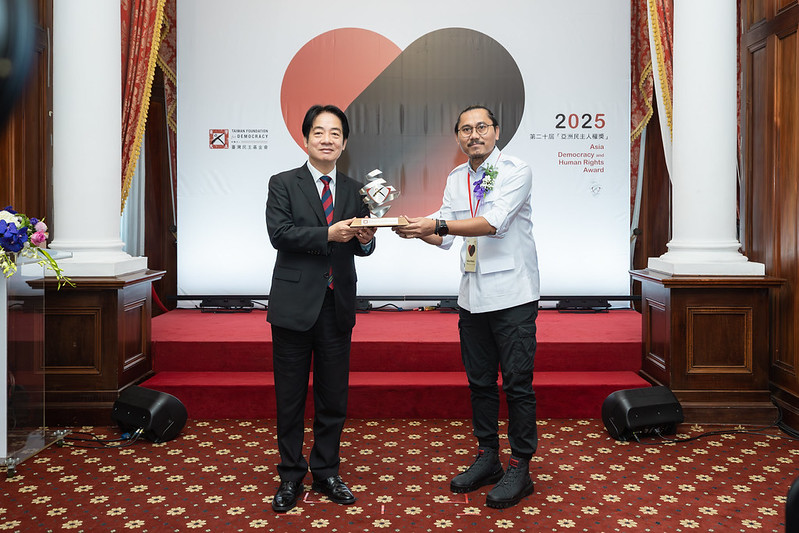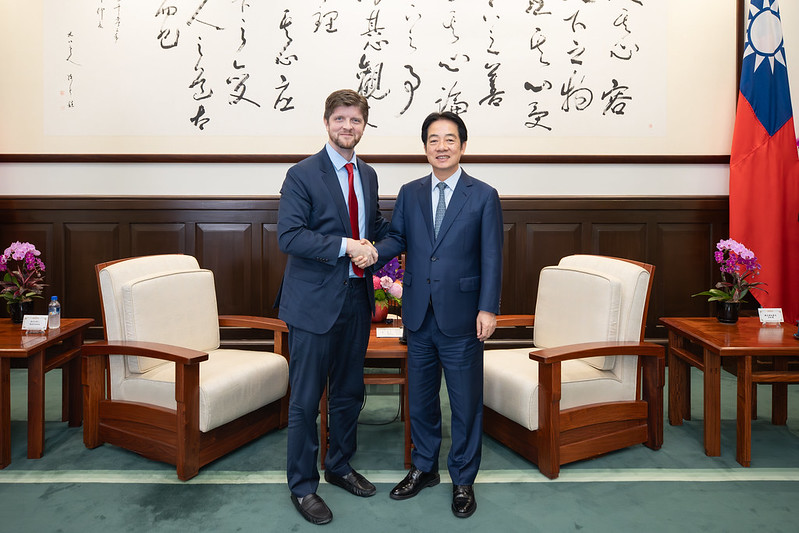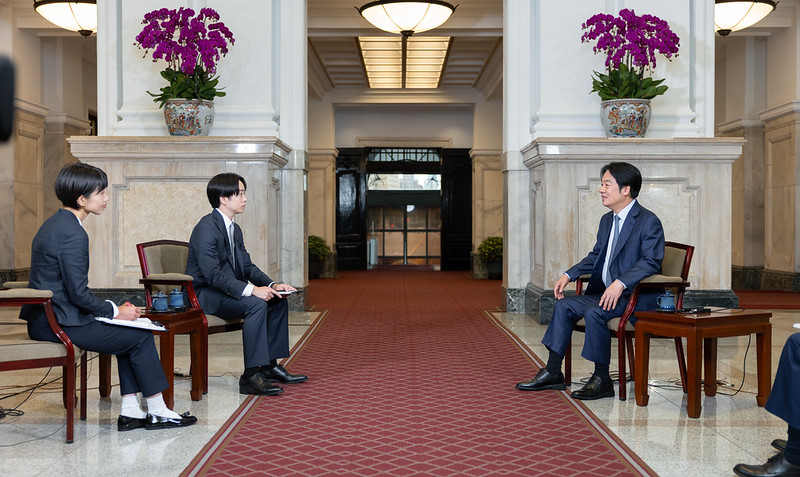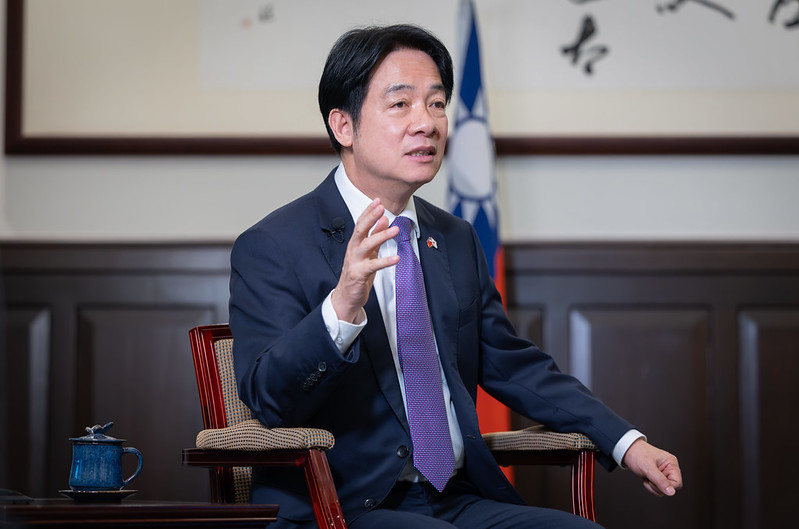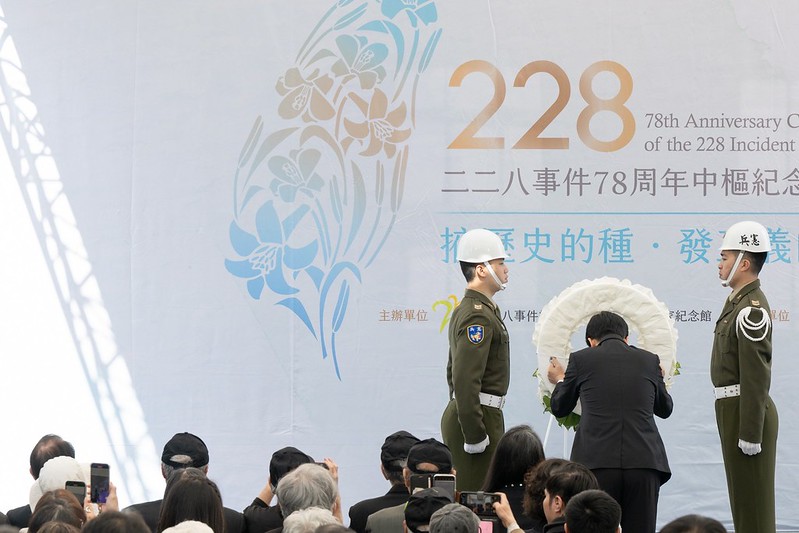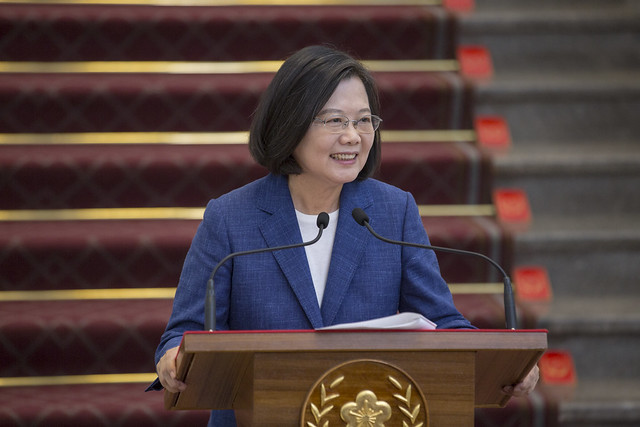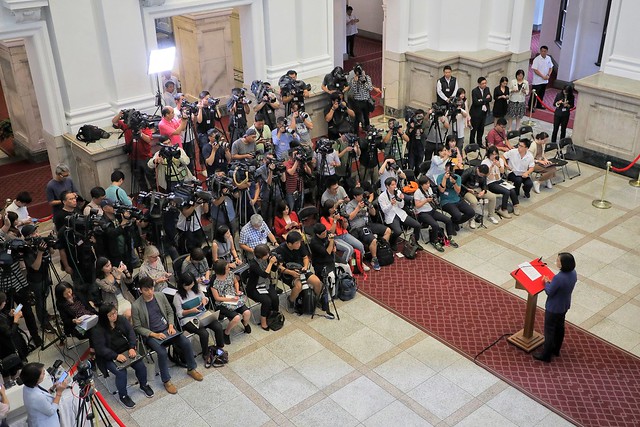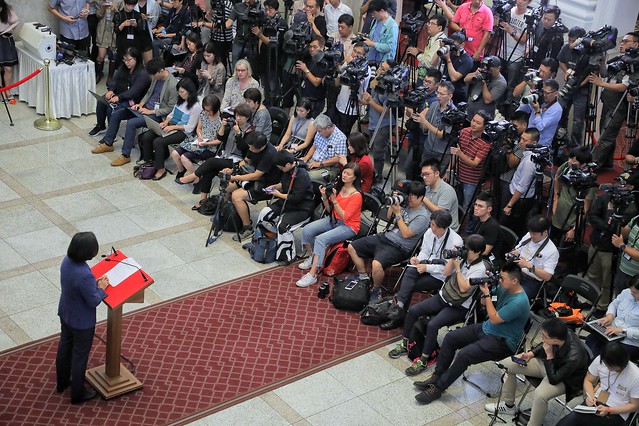News & activities
 News releases
News releases
President Tsai Ing-wen issued a statement regarding the situation in Hong Kong on the afternoon of June 13 at the Presidential Office. She explained that the democratic protests in Hong Kong not only made Taiwanese cherish their existing democratic system and way of life even more, but also made it clear to them that the "one country, two systems" model is not viable. She emphasized that as long as Tsai Ing-wen is president, anyone who tries to undermine Taiwan's sovereignty and democracy, or use them as political bargaining chips, will fail.
In remarks, President Tsai said the current democratic protests in Hong Kong have attracted a lot of attention around the world. Seeing Hong Kong police using tear gas and rubber bullets against the public, she said, was especially shocking and intolerable. The people of Hong Kong have the right to pursue their own democracy and freedom. Even more, they have the right to choose their own lifestyle and political system. Taiwan is a bastion of democracy in Asia, and we will always support these universal values.
President Tsai also noted that several Hong Kong students currently in Taiwan came to the Presidential Office today to voice their concerns. Because she was on official business, President Tsai asked Secretary-General to the President Chen Chu (陳菊) to receive them. We expressed our concern about the situation, and listened to their opinions. There are concerns that the amendment to the Fugitive Offenders Ordinance infringes on human rights, so we hope that the Hong Kong government will take the protest demands seriously, engage in dialogue and communicate with the public, and refrain from rashly forcing through the legislation in question.
President Tsai pointed out that the amendment to the Fugitive Offenders Ordinance also infringes on the sovereignty of the Republic of China (Taiwan), and we will not accept this. We reject their use of individual extradition as an excuse to make legal amendments. We cannot work together to crack down on crime using laws that infringe on human rights as a precondition. We will not be an accessory to the passage of this unconscionable law. For the people of Taiwan, the biggest takeaway from this incident is that "one country, two systems" is not viable, and is absolutely unacceptable for a democratized Taiwan.
President Tsai further pointed out that the protests in Hong Kong have made Taiwanese people cherish our democratic systems and way of life even more. The president's paramount responsibility is to safeguard Taiwan's democracy and sovereignty, she said, so that all generations of Taiwanese people have the right to choose their own future. She emphasized that as long as Tsai Ing-wen is president, anyone who tries to undermine Taiwan's sovereignty and democracy, or use them as political bargaining chips, will fail.
The president then took questions from the media. In response to a question regarding whether she was worried about the confrontation in Hong Kong escalating, President Tsai stated that the protests in Hong Kong have caused people around the world, particularly the Taiwanese people, to feel both unsettled and worried. Hong Kong is not far from Taiwan, and people in Taiwan are closely following further developments on this issue. She expressed hope that the people of Hong Kong would be able to feel strong support from the shared concern of Taiwan and the international community, and that they would know that they are not alone in their pursuit of further democracy and freedom.
The president stated that the Hong Kong government must communicate with the people on this issue and set an example as a democracy, so that this issue can be resolved reasonably. We do not wish to see the Hong Kong government use force on its own people to suppress their freedom of speech, she said. Taiwan will do everything in its power to help the people of Hong Kong maintain their democracy and freedom of speech during these protests.
